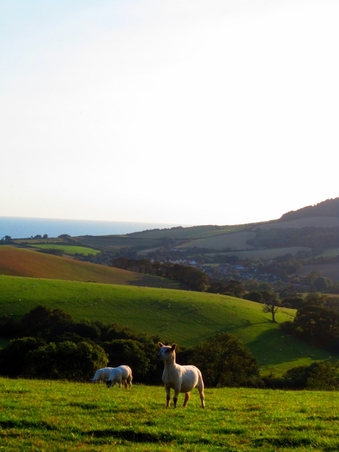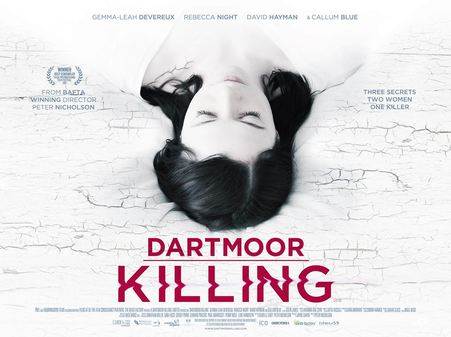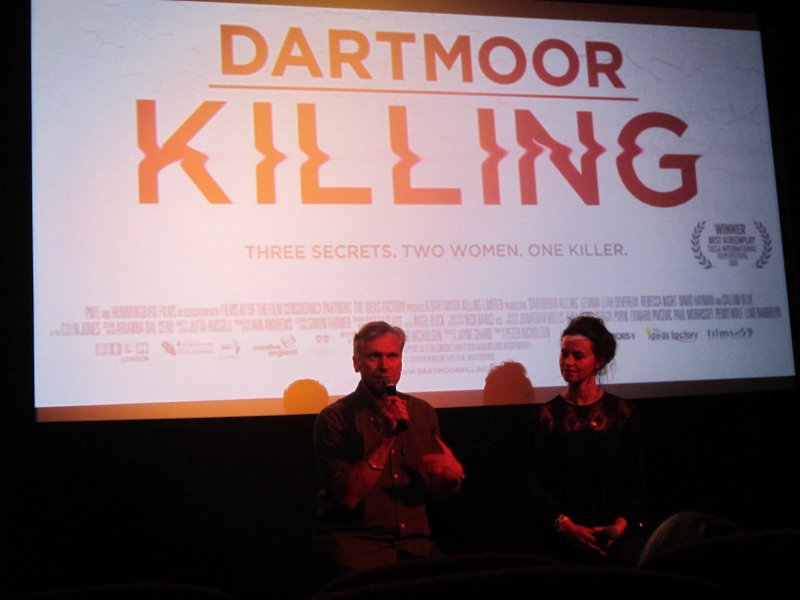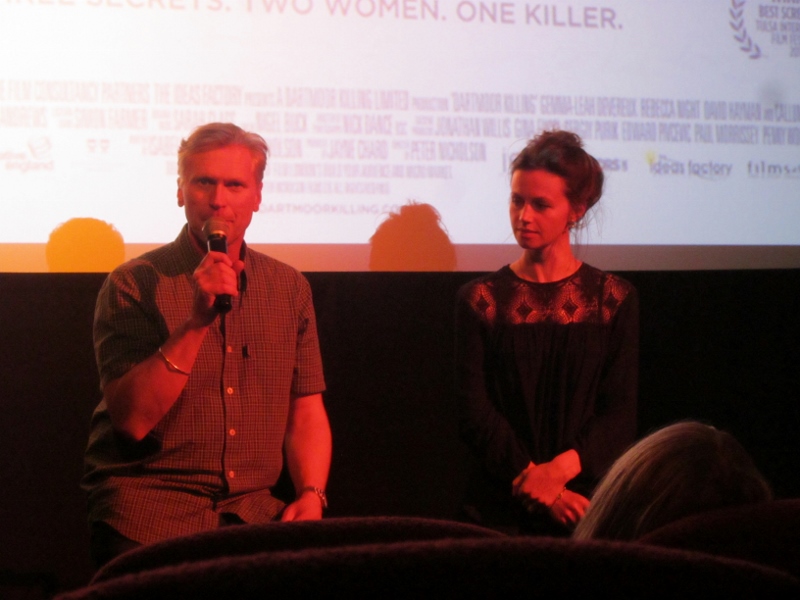|
On Monday, whilst trying to dodge shoppers and tourists along Oxford Street before making my way to the Clapham Picturehouse for the screening of Dartmoor Killing, I thought about how right I was to move back to the South West. Indeed, no later than the previous evening, this was the view I'd had from the top of a field in West Dorset: Over half of the world's population lives in cities and the migration of humans from rural areas to spreading metropolises appears seemingly never-ending (in the UK, it is predicted that 92.2% of the population will be urban by 2030). Nature seems to have somehow become the enemy of progress and of human endeavour; urban has become the byword for the perpetually cool, the hip, the much coveted multiculturalism. If it's not urban, it's not worth mentioning; rural areas have been declared irrelevant to the consumerist lifestyle chosen by the majority. Trendsetters, commentators and opinion-makers are all frightened to death to get out of the M25 or whatever soul-crushing ring road signals the boundaries of their known world. For them, they are part of the future, they are progress. They consider the countryside and nature to be frozen in an unchanging distant past. Nature is scary because it is still mysterious to us; it's indomitable, out of control; you cannot buy it, not really; and you cannot measure it with statistics and numbers and algorithms. Nature reminds us of our prehistorical and pagan past, you know, the one before Christianity came and ruined everything. This past is still carved into the landscape of this island, and nowhere is it more in evidence than in the South West of England. Some people fly half way across the globe in order to spend time in some exotic wilderness. These same people would never think of exploring our very own wilderness and jungles, in spite of them being there, in front of them. My first novel is mostly set in Cornwall; my second one in Somerset. And my work-in-progress will have the West Dorset landscape as a central character. The South West inspires me, as it seems to inspire Peter Nicholson, the director of Dartmoor Killing, which is his first feature film (he is an award-winning documentary maker). If you've had a look around this website, you'll know that a few months ago, I read Robert McFarlane's essay "The eeriness of the English countryside" and had a big "eureka" moment. My writing had found its place within the fascinating "Occulture" the academic and nature writer defined and described so well in his article. And I think Dartmoor Killing fits pretty well in this exciting cultural movement. There are so many stories to be told, so much richness in the landscape... In music, literature, art, film and photography, as well as in new and hybrid forms and media, the English eerie is on the rise. A loose but substantial body of work is emerging that explores the English landscape in terms of its anomalies rather than its continuities, that is sceptical of comfortable notions of “dwelling” and “belonging”, and of the packagings of the past as “heritage”, and that locates itself within a spectred rather than a sceptred isle. I was really interested in the way the movie would use the landscape as a character in the story, and I was not disappointed. From the opening titles sequence, with the bus slowly making its way across the moor, the landscape takes your breath away with its beauty - but it also unsettles you. There is a raw brutality to it. In space, no one can hear you scream... neither can they on the moor, it seems. There is no supernatural element to Dartmoor Killing - or is there? As soon as the two "townies" - Becky and Susan, two girls in their twenties on a weekend break away from the capital - step outside the bus, something seems to come over them; the magic power of the landscape and nature get to work on the two friends at once, removing the veneer of the city, stripping them to their most basic human instincts: it brings down the hang-ups brought on by society and civilisation, it is sensual and dangerous. The appearance of Heathcliff-like Chris only adds to the explosive mix. The moor and the farm are beautifully shot: it's an idyllic setting, but it's isolated; nature is alive, the wind makes the branches move, water is flowing in the streams, and the camera hints at some mysterious forces at play. Even in 2015, technology fails on the moors: there is no phone signal. All four individuals present on the farm only have the others to rely on, and this might prove to be rather perilous indeed. I like the way the setting feels claustrophobic even though the characters are moving around the open countryside. They are not exactly prisoners in a physical way (although we never know whether the two girls can drive, and they hopelessly try to find their way through a very atmospheric never-ending English "jungle" - their gaol is more psychological: the characters are prisoners of their guilt, their values, their family ties, their friendships, their past, their secrets. Dartmoor Killing is a tense thriller with a strong sense of place (the Premiere was held as an outdoor event on Dartmoor!). Shot in 23 days on a budget of £500,000 it is an independent British film worth supporting. The movie is being shown in 33 cinemas, mainly in the South West (some in London) - you can check venues HERE. It is released on DVD and on demand on October 19th (but it deserves to be seen in a cinema to really appreciate the scale of the landscape). Films like Dartmoor Killing can help the British public rediscover their country and start appreciating what it has to offer outside of the shiny big cities - I am talking in terms of culture, intellectual challenge and human experience. At the Q&A after the screening, attended by director Peter Nicholson and actress Rebecca Night, the former revealed his forthcoming projects. I am very intrigued by the sci-fi thriller set in Cornwall, what about you? See the trailer here: Comments are closed.
|
AuthorI think therefore I write. Archives
June 2024
CategoriesAll Art Books Cinema Culture Events Idea Ideas Inspiration Inspirations Literature Music People Places Promo Publishing Reading Reviews Self Publishing Self Publishing Self-publishing Society Theatre Thoughts Working Work In Progress Work In Progress Writing Writings |




 RSS Feed
RSS Feed
